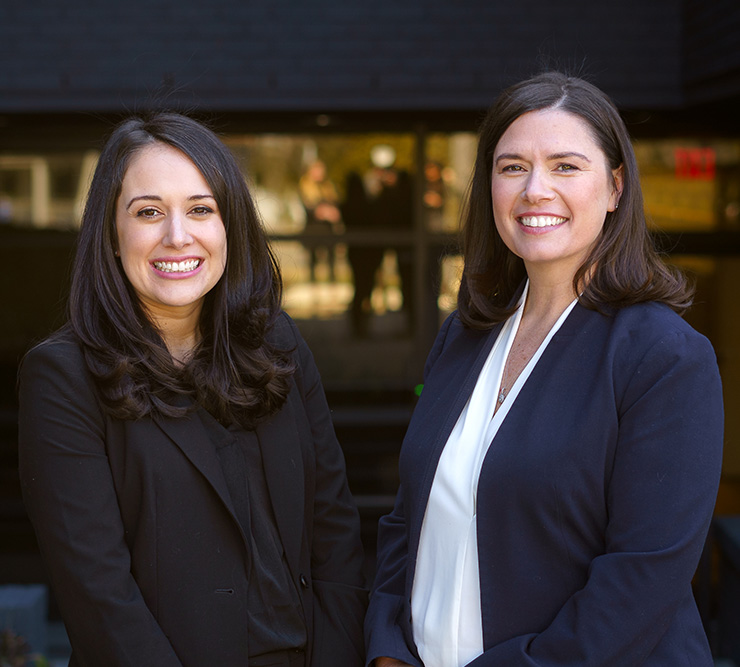

Domestic Violence Lawyer in Westport
When you need a domestic violence attorney in Westport, you deserve more than just legal support—you need understanding and a clear path forward. At Ferro, Battey & Eucalitto, LLC, our dedicated family law team helps clients navigate sensitive cases with care and strong advocacy. Our team understands every family in Westport faces unique circumstances when seeking a domestic violence lawyer. By listening closely, we tailor our services and guidance to your specific needs. With decades serving clients in Fairfield County, we provide more than just legal representation—we offer reassurance, practical answers, and a steady presence.
Call us at (475) 264-4362 today to schedule a consultation with our Westport domestic violence attorney.
Why Choose a Domestic Violence Lawyer in Westport from Our Firm?
- Decades of Family Law Experience: We focus exclusively on family law, providing clients with deep insight into Connecticut family law matters and the Westport legal landscape.
- Recognized Legal Achievements: Our attorneys have earned AAML Fellow status and are consistently included in Super Lawyers and Best Lawyers, which reflects a strong track record of professionalism and client advocacy.
- Personalized, Client-Focused Approach: We build trust with Westport clients by handling every case directly and maintaining open, honest communication from start to finish.
- Cost-Conscious Strategies: We tailor affordable solutions to your family’s needs, helping you move forward with peace of mind.
Our Domestic Violence Legal Services for Westport Families
Contacting a domestic violence lawyer in Westport gives you access to a team that handles the full scope of family law. We understand local court protocols and help you assess your options, whether you seek immediate safety, need long-term legal planning, or are involved in related family law matters.
- Guidance on Protective Orders: We explain the restraining order process in Westport and help you prepare for hearings and court requirements.
- Support for Related Family Law Matters: Domestic violence allegations can influence child custody, visitation rights, and property arrangements. We ensure you understand how these factors affect your case.
- Clear, Direct Communication: We provide practical information at every step—keeping you informed, reducing confusion, and helping you prepare for what comes next.
- Focused Advocacy in Sensitive Situations: You can trust us to approach your case with discretion and resolve it—in or out of court.
How Domestic Violence Cases Move Forward in Westport
Westport courts address domestic violence cases with urgency and take measures to protect client safety. The local process allows for quick, private hearings, which helps you access protection quickly when time matters most. Working with our attorneys provides you with perspectives shaped by years of navigating local procedures and advocating for clients in Fairfield County’s courts.
- Fast-Tracked Hearings: Courts often expedite initial protective order hearings, sometimes within days, to prioritize safety and provide prompt relief.
- Local Law Enforcement Cooperation: Westport Police partner with the courts to enforce court orders and ensure compliance with protective measures.
- Court-Centered Decisions: Judges consider each situation individually, evaluating all evidence and focusing on safety when making decisions about parental access and temporary home arrangements.
- Impact on Family Law Outcomes: Domestic violence allegations can affect decisions about parenting, living situations, and property distribution when other family law matters are involved.
FAQs
What rights do I have if I pursue a restraining order in Westport?
You may request a restraining order for immediate protection. Connecticut courts review these requests quickly and focus on your safety. The process involves a hearing with a judge, which can affect future contact or living arrangements.
How can domestic violence allegations affect my custody case?
Judges prioritize child safety and may adjust custody or visitation arrangements if they believe a child faces any risk. The court reviews each situation carefully based on the facts and available evidence.
What should I bring to my first meeting with a domestic violence lawyer?
Bring relevant documentation and any communications related to your situation, as well as a list of concerns or questions. This preparation helps your attorney understand how to guide you.
Can someone accused of domestic violence still see their children?
Court decisions about parenting time depend on the details of the case. Judges may order restricted or supervised visits to protect all involved, especially while a matter is active.
Contact Our Domestic Violence Attorney in Westport
During your confidential consultation, our team will answer your questions and explain your legal options in clear terms. We listen, guide, and help you choose the next step with confidence. Our focus on family law, combined with experience in Westport courts, ensures you always have someone in your corner who understands your unique needs.
Call us at (475) 264-4362 today to take the first step toward greater stability and peace of mind with our Westport domestic violence attorney.

-
“I had a fairly complex case which involved adultery. Janet & Olivia were able to dissect the issue in a stepwise, logical manner, delivering ample rewards during the actual trial.”- Former Client
-
“I know Ferro Family Law provided me the very best outcome I could hope for. Since then, I have retained them to represent me in some post judgment actions.”- Former Client
-
“From the first time I met Janet & Olivia, through the end of my case, I knew I was in great hands. I cannot thank Ferro Family Law enough.”- Former Client
-
“Aggressive, compassionate, cost-effective. I regularly refer Janet & Olivia to some of my most sensitive divorce cases. They are results-focused and responsive.”- Attorney Referral
-
“This compassionate group of knowledgeable attorneys helped me and my children. I have and will continue to refer this firm to anyone in need of counsel for divorce.”- Former Client
-
“Not only did Janet & Olivia quickly help me secure all protections for my daughter, they also ingeniously found a way to impel my spouse to get proper treatment.”- Former Client
-
“Janet & Olivia genuinely care about all aspects of the client’s case and pay close attention to the client’s concerns, goals, and finances.”- Former Client
-
“I have worked on several matters with Janet and Olivia. They are amazing attorneys. Smart, thorough and practical.”- Former Client

Have Questions?
-
What are the grounds for a “fault” divorce?
The fault grounds for divorce include adultery, fraudulent contract, desertion, alcohol or drug addiction, intolerable cruelty, imprisonment, and others. To get divorced, one party must establish one of these grounds. It is uncommon for one party to ask for a divorce on a fault-based ground.
A party does not need to file for divorce on a fault-based ground, however, to argue that the court should consider the other party’s fault. The court may consider the fault of either party when making alimony and property division orders.
-
How long will the divorce process take?It depends. If the parties have an agreement on all issues and meet certain other conditions, they may get divorced as soon as 35 days from the date the divorce starts. However, that is atypical. Depending upon the contentiousness and complexity of the case, the case could last a year or more.
-
How are child support obligations determined?In Connecticut, when determining child support, the court is required to consider the Connecticut Child Support and Arrearage Guidelines. The Guidelines set forth a presumptive child support award for each case based upon the parties’ combined net weekly incomes and the number of children the parties have. In addition, the court may consider a number of other factors, including, but not limited to, the estate and needs of the child, vocational skills and employability of each parent, and each parent’s earning capacity. The court may also deviate from the presumptive child support for different reasons, which can include shared physical custody, coordination of total family support, or extraordinary disparity in parental income. To learn more about the calculation of child support in Connecticut, including high-income cases, click here.
-
Who is entitled to custody of the children in a divorce case?The court may assign custody of a child to either parent, jointly to both parents, or in very rare situations, to a third party, depending on the facts of the case and the best interests of the child.

